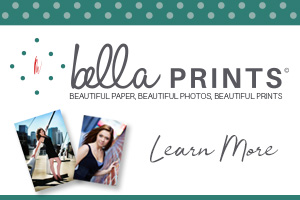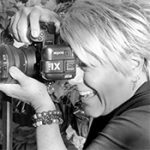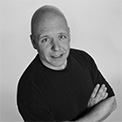Your Ego: Undermining or Supportive?
Intro by Skip Cohen
We don’t usually get into the self-help side of our lives very often on the Marathon blog, but I loved this past post from my buddy Rob Nowell. We typically think of “ego” as it relates to arrogance, but as Rob points out, there are so many photographers who need a little more ego and self-confidence.
Years ago I had a photographer introduce himself at a convention by saying, “You don’t know me. I’m just one of the little guys out there…” His mannerisms were so shy, quiet and passive until I reminded him that if it weren’t for all the “little guys” out there, we’d have no industry! He loosened up a little, and he shared the questions he had.
Then at the other extreme, there are photographers who we’ve all watched grow up in this industry who suddenly seem to believe their own press releases! They’re almost unapproachable, too opinionated and have forgotten their roots.
With the new ClickCon show coming up in August in Chicago, it’s the perfect time to reference the section in which Rob talks about the support and benefits of attending various conventions. It’s the quest for learning, education, and networking that will help contribute to the positive side of your ego and help you to keep growing!
See you in Chicago!
By Robert Nowell
Many of us would agree that a lack of knowledge can be an obstacle to growth as a photographer. The obvious solution is to seek out avenues that can provide that missing knowledge and then to put that new knowledge into practice.
I have observed another major obstacle to growth that can disguise itself and take many forms.
That obstacle is Ego.
Ego is often thought of in a completely negative context and that is the most recognized interpretation of that word. Sometimes ego is an unconscious thing we do more out of instinct than choice. Consider babies as an example. Babies are mostly completely self-centered and are primarily focused on themselves. They want to be fed, held, and changed, all based on their immediate physical and emotional needs through no fault of their own. Babies are after all quite helpless to do anything for themselves. There comes a point in a young child’s growth when they start to recognize the needs of others and through social contact, they begin to become less self-centered in their activities.
I have met many photographers over the years who have let a lack of “ego” paralyze their ability to learn and grow. Their lack of confidence makes them shun conventions, workshops and industry get-togethers simply because they feel inadequate, and compare themselves in a negative way to others. They always feel that their work is substandard, that everyone is a better photographer, runs a better business, has a better logo, etc. That kind of thinking interferes with their ability to share and join in. It certainly stops them from entering any work into image competitions because they feel they couldn’t handle the critiques.
If you ever chat with someone who regularly goes to events like WPPI, PhotoPlus Expo or Imaging USA (to name a few), you’ll hear them say things like how many people they’ve met; the valuable industry relationships that were started there; and the amount they learned and grew as a photographer by attending. Avoiding that kind of experience because of a feeling of inadequacy is a real shame. Fortunately, this kind of “ego issue” is more easily fixed than other examples.
Photographers that feel that way just need encouragement and a little bit of courage to “just do it”. They need to swallow their fears and take a leap of faith and sign up. Maybe some baby steps are the best start. If you are finding yourself suffering from this type of ego, try reaching out to another photographer in your area to meet for coffee and ask them for advice. Have them look over your website and give honest feedback. Tell them about an issue you’re having in your business and ask them how they’d approach it. (Incidentally, I just had a call yesterday from a local photographer asking about a retainer refund issue he was struggling with and I was very pleased to help.)
There is another side of ego, which as I mentioned earlier we are more likely familiar with. That is the ego that says we know it all already. We can’t improve because we are already doing everything the best way possible.
It never ceases to amaze me when I witness photographers who blatantly send out the message that they have nothing to learn. That is the photographer who goes to a workshop or seminar and puts up their hand to speak and doesn’t want to ask a question, but just wants to tell everyone in the room how they would do what the speaker has just spent thirty minutes explaining. That is the photographer who attends a convention but never actually listens and watches but spends their time working on their laptop or worse just sits at the back of the room chatting with their neighbor.
Then, of course, there is the photographer who just never attends any kind of continuing education because again they feel it would be a waste of their time since in their mind they likely know everything they need to create great photographs and to run a successful business.
That kind of ego is not very helpful. Photographers with big egos are not usually interested in helping others unless of course, it can feed their ego even more.
Those that are always pursuing ways to improve don’t usually have much of a problem with ego. They likely have a healthy ego. They don’t have an issue with asking for help. They have a keen desire to learn. They often seek out ways to improve themselves as well as improve their work. They are comfortable with self-analysis as a means of measuring change.
They don’t see themselves as perfect or even desire to try to be perfect. They want to work with others, learn from others and help others. They see the community as a good thing and try to contribute to the industry as a whole. This photographer is an ambassador of our industry. They represent professional photography well.
It would seem that a large part of our population has a desire to improve. Just have a look at the self-help section at a local bookstore. It is teeming with titles that show us how to gain confidence, become better time managers, improve our attitudes, become better at dealing with people, staff or clients. I’m not suggesting that we have to get obsessed with getting better. Obsessions of any kind are usually not healthy. What if we could find a balance between being content in life and also wanting to improve areas of our life and work that would benefit ourselves and others.
Having the best equipment can serve two purposes for example. It could be because we want the best quality for the end product. On the other hand, we could be less interested in what the best can deliver and more interested in the status that having the best can bring us. Which one sounds more like a big ego?
By examining our motives we can get to the heart of who we are and what we bring to the table.
Why not take some time for a personal “state of the union” talk with ourselves.
Let’s examine if we feel like we strive to learn and improve our photography and business. Are we open to collaborating with others? Will we cheerfully help others if asked or if the opportunity arises? Are we confident enough to ask for help ourselves with no sense of embarrassment or shame?
The road to success has many surfaces, some smooth, some bumpy and there can be diversions and detours along the way. By being open and honest we can typically get to the destination and make a few friends along the way. We can help those that stumble and have the favor returned many times over.
The life of a professional photographer is a rewarding and challenging creative career and, done with the right attitude and humility, it can make for a very fulfilling life.

















